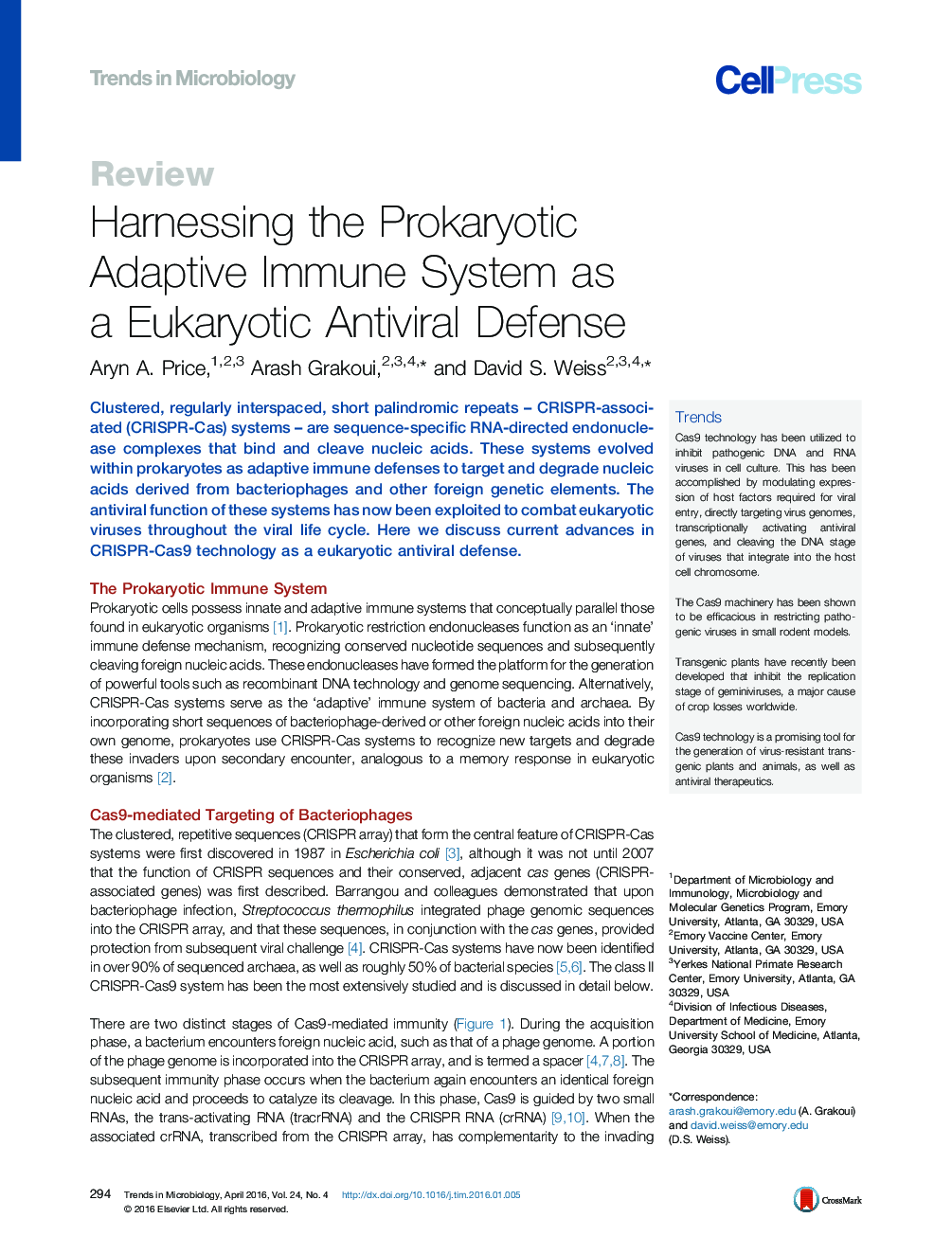| کد مقاله | کد نشریه | سال انتشار | مقاله انگلیسی | نسخه تمام متن |
|---|---|---|---|---|
| 3421821 | 1226687 | 2016 | 13 صفحه PDF | دانلود رایگان |
Clustered, regularly interspaced, short palindromic repeats – CRISPR-associated (CRISPR-Cas) systems – are sequence-specific RNA-directed endonuclease complexes that bind and cleave nucleic acids. These systems evolved within prokaryotes as adaptive immune defenses to target and degrade nucleic acids derived from bacteriophages and other foreign genetic elements. The antiviral function of these systems has now been exploited to combat eukaryotic viruses throughout the viral life cycle. Here we discuss current advances in CRISPR-Cas9 technology as a eukaryotic antiviral defense.
TrendsCas9 technology has been utilized to inhibit pathogenic DNA and RNA viruses in cell culture. This has been accomplished by modulating expression of host factors required for viral entry, directly targeting virus genomes, transcriptionally activating antiviral genes, and cleaving the DNA stage of viruses that integrate into the host cell chromosome.The Cas9 machinery has been shown to be efficacious in restricting pathogenic viruses in small rodent models.Transgenic plants have recently been developed that inhibit the replication stage of geminiviruses, a major cause of crop losses worldwide.Cas9 technology is a promising tool for the generation of virus-resistant transgenic plants and animals, as well as antiviral therapeutics.
Journal: - Volume 24, Issue 4, April 2016, Pages 294–306
